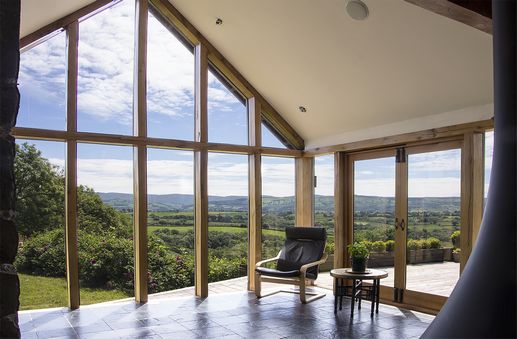Good levels of daylighting are crucial to occupant comfort in new buildings.
The provision of daylight is as important as ensuring low levels of noise, or low levels of odour in maintaining the enjoyment of a property. Adequate levels of daylight are important not only to light and heat the home, but also for an occupant’s emotional well-being.
Daylight is widely accepted to have a positive psychological effect on human beings and there is a great deal of evidence to suggest that people who are deprived of daylight are more susceptible to depression and mood swings. This is common in northern countries, such as Norway, Iceland and Canada where daylight is scarce during the winter months.
Daylighting calculations are often assessed alongside a Sunlight Analysis, which uses different criteria.
How can daylight calculations help?

Daylighting calculations can help designers to mitigate against the risk of poor natural light and also provide credits against environmental assessments like The Home Quality Mark and BREEAM.
Developing in high density urban, built up areas can often lead to poor light levels in some dwellings. Daylighting analysis takes account of a number of factors including ‘view of the sky’, and whether there is enough light at a working plane (desk) level within the dwelling.
This will very much depend on orientation, elevation and surrounding buildings – for example on a block of apartments, some units may be impacted much more than others.
Why do I need daylight calculations?
Daylighting analysis is commonly required:
- For a Home Quality Mark assessment
- For a BREEAM Assessment
- Because a planning application requires them
- Because the designers would like to mitigate against poor levels of natural light
Daylighting is not a mandatory issue in HQM or (the now defunct) Code Assessment, but most of our clients find it a relatively inexpensive and effective means of gaining extra credits.
BREEAM also offers credits in it’s Health & Wellbeing / Visual Comfort category.
In both instances the scheme assessor will need to provide evidence of daylighting calculations being carried out. Typical daylighting targets are 1% in bedrooms, 1.5% for living rooms, and 2% for kitchens.
Working plane calculations need to show that 80% of the working plane in a room receives direct light from the sky.
 What is compliance?
What is compliance?
Several key standards exist to provide guidance:
- BS 8206-2:2008 Lighting for Building – Part 2 Code of Practice for Daylighting
- CIBSE Lighting Guide LG10:1999 – Daylighting & Window Design
- Communities & Local Government Code for Sustainable Homes Technical Guide Nov 2010
Daylight Calculations may be performed manually using the above standards, guidance and formulae.
They may also be carried out using Dynamic Simulation Modelling (DSM) software packages such as those provided by Designbuilder, IES and TAS. These allow for much more sophisticated 3D modelling and analysis.
Climate based daylight modelling
Climate Based Daylight Modelling is a specific methodology for undertaking daylight checks. The fundamental difference with normal daylight checks is that it uses sun and sky conditions derived from climate data, as opposed to the standard CIE overcast sky condition used in the calculation of daylight factors.
It is most applicable for education projects, since the Education Funding Agency (EFA) made it a requirement for new school designs.
Build Energy can provide daylighting analysis across a multitude of buildings, from one-off self builds to very large and complex mixed use schemes. We can create bespoke reports tailored to your requirements, and provide guidance and solutions to any issues.
Would you like to discuss your project?
Call us for a chat on 0330 055 34 05 or email be@buildenergy.co.uk.
